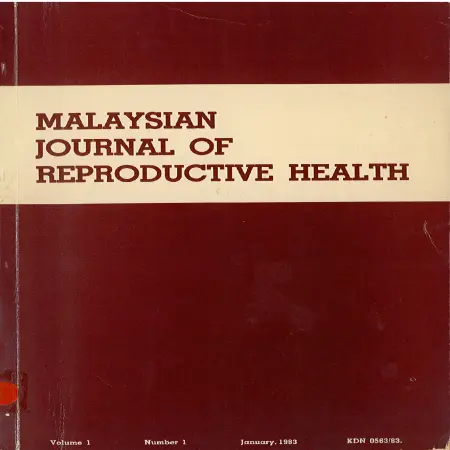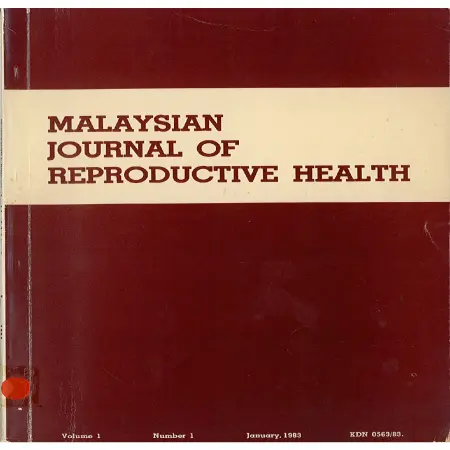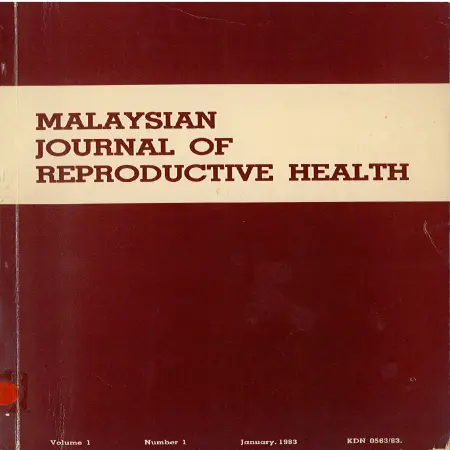Browse by Type
Results for Item type : "Article"
|
|
Actinomyces-like organisms in the cervical smears of IUCD users
Item Type: Article
Editor:
Year: 00/01/1983
Abstract: Cervical smears of 128 intrauterine contraceptive device users were stained by Gram stain and screened for the presence of Actinomyces-like organisms. Actinomyces-like organisms were observed in 5.5 percent, pus cell in 20.1 percent and yeast cells in 10.2 percent of the smears examined. The average duration of insertion was 8 months. Smears of 103 controls were negative for Actinomyces-like organisms, pus cells were observed in 8.7 percent and yeasts in 4.8 percent.
|
|
|
|
|
|
Problems of neonatal surgery in Malaysia
Item Type: Article
Editor:
Year: 00/01/1983
Abstract: From January 1970 to May 1981, there were 594 neonates admitted to the General Hospital, Kuala Lumpur for surgery. Three hundred and seventy-one cases bad major alimentary tract alimentary tract abnormalities 97.1 percent of which caused obstruction. High gut anomalies and diaphragmmatic hernia (Group A cases) were relatively uncommon and the overall post-operative mortality for this group was high (64.6 percent). Overall mortality declined from 75.0 percent in 1970 to 10.3 percent for the first six month of 1981. Death rate among the low birth weight infants and those with multiple anomalies however, remain high. Factors related to post-operative mortality are discussed. Foremost among them is the time of referral to the surgeon. Various problems of management in this hospital are also highlighted.
|
|
|
|
|
|
Female sterilization using filshie clip in private practice
Item Type: Article
Editor:
Year: 00/01/1983
Abstract: The findings of a trial clip female sterilization program in private practice in Malaysia is presented. The Filshie clips were successfully applied in 382 subjects. Complications encountered were minimal. Only one subject presented with an intrauterine pregnancy following sterilization (0.3 percent). The success rate was very high in the region of 99.7 percent. This study also strengthens the view that private practitioners can play a very important role in the delivery of family planning advice and services to the masses in developing countries.
|
|
|
|







